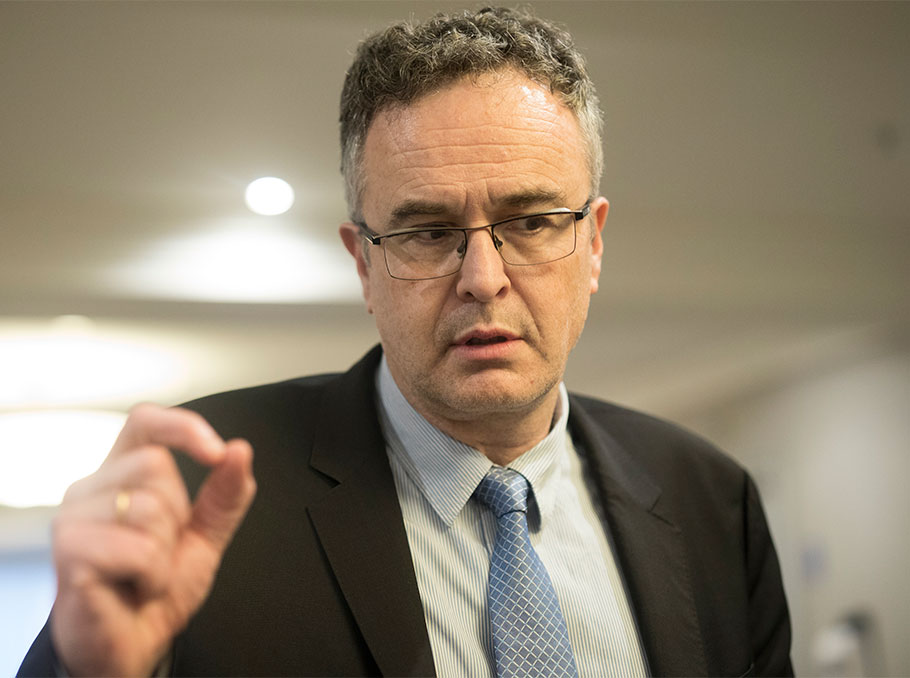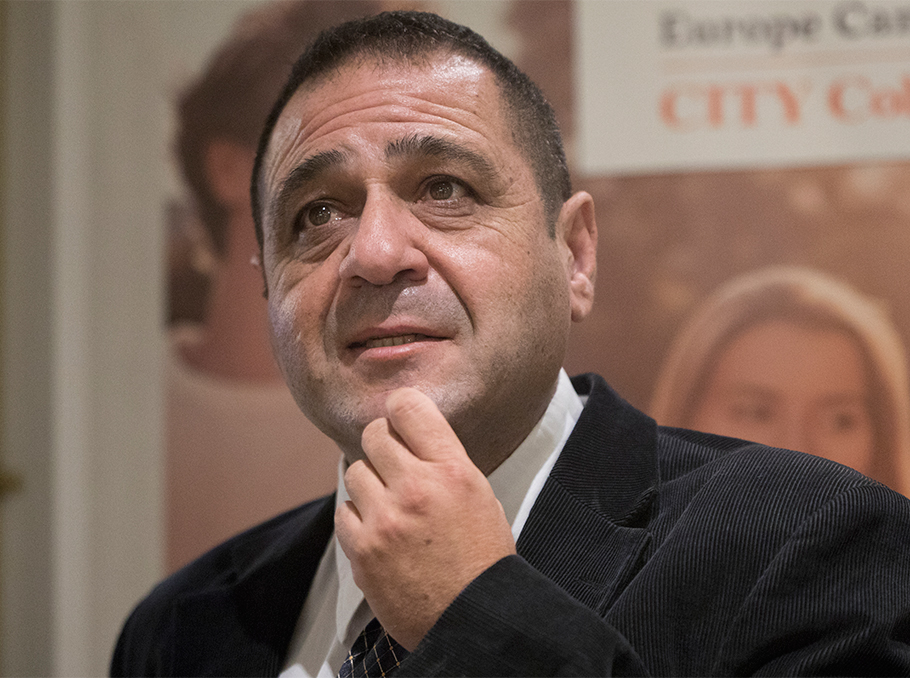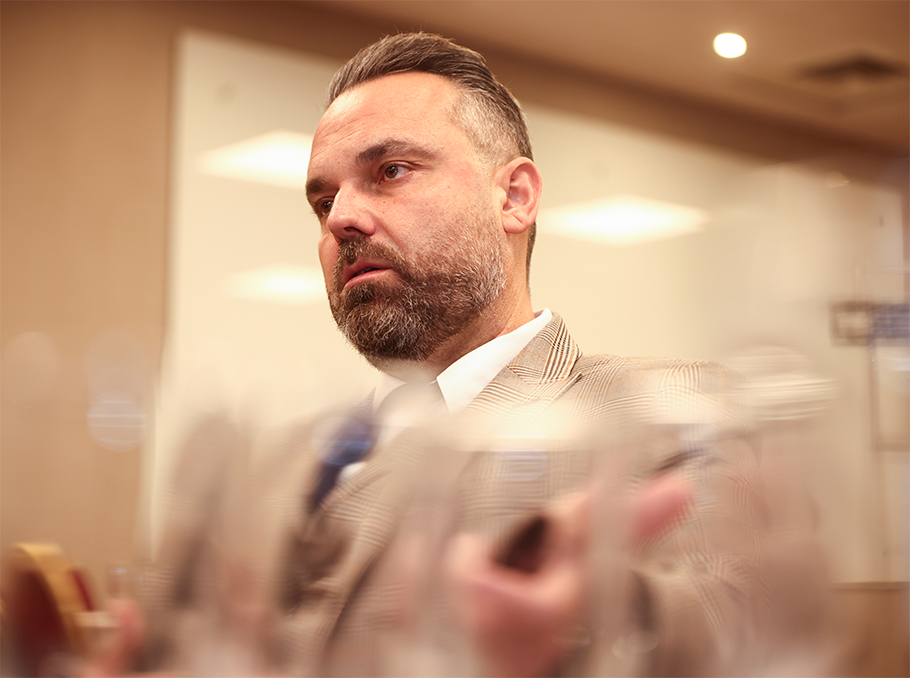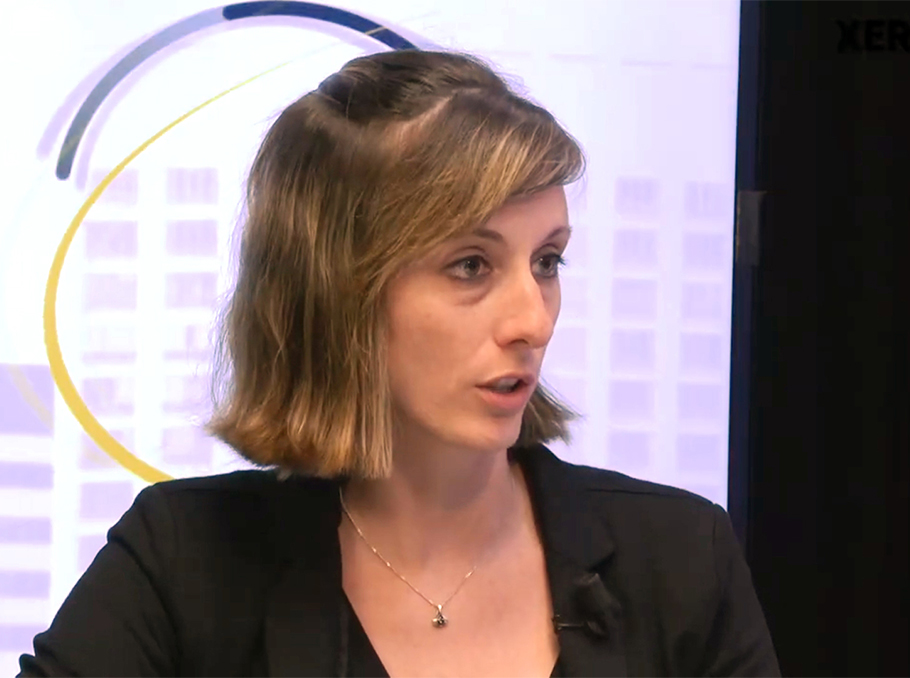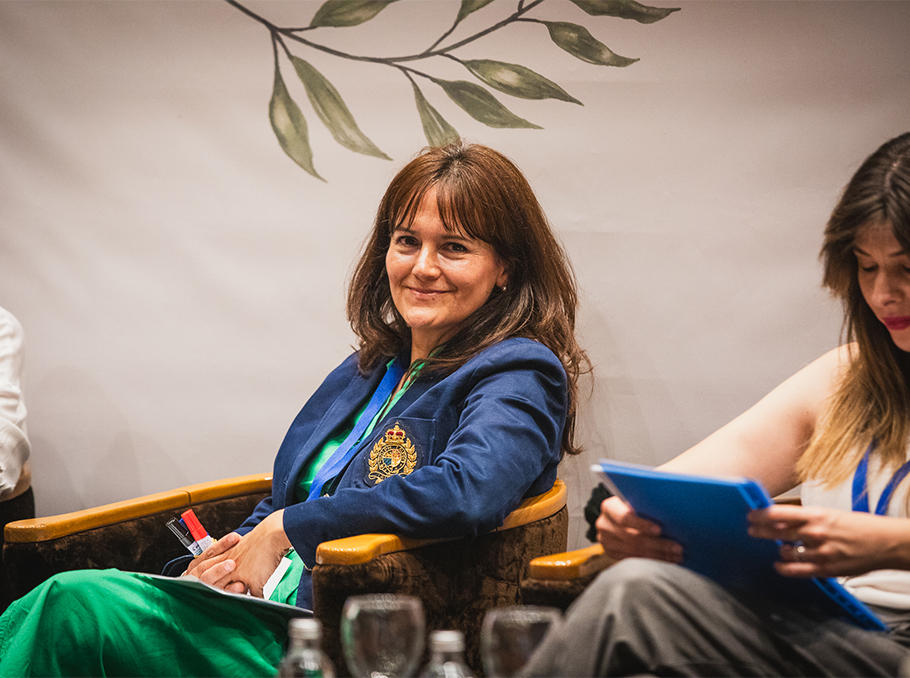Until recently considered a novelty, AI-driven tools have now become part of everyday life: they offer visible help in both work and daily routines, yet the harm they cause may not be as visible. In the age of easily accessible but overwhelming flows of information, the role of fundamental education has taken on renewed importance.
Mediamax spoke with Professor Leslie Szamosi, Dean of the School of Business and Director and lecturer in the Pan-European Executive MBA programme, about the modern challenges business leaders face, the value of high-quality business education, and the importance of continuously challenging one’s own thinking.
The Pan-European Executive MBA programme, also delivered in Yerevan, is jointly offered by the University of York Europe Campus CITY College and the Faculty of Economics and Management at the University of Strasbourg.
It provides Armenian applicants with the opportunity to obtain a high-quality British and European education and earn two MBA diplomas – from the Universities of York and Strasbourg – while continuing to live, work, and study in Armenia.
- Professor Szamosi, we already see short AI master-classes advertised as if, when used correctly, AI can deliver a full business strategy in several minutes. All this noise around AI makes some people believe that formal business education no longer matters. As Director of the Pan-European Executive MBA, and with your long experience in education, what is your response to this perception?
- AI is a tool – it is not the be-all and end-all. If AI was the master tool for everything, basically, we would have no way of differentiating how business strategy would work. Imagine five people using the world’s most advanced AI system: they input identical information, and in theory, they will get the same information. Then you do not differentiate one from the other. AI is a tool that would help you, would give you a better chance of success. But AI, in and of itself, is not the solution.
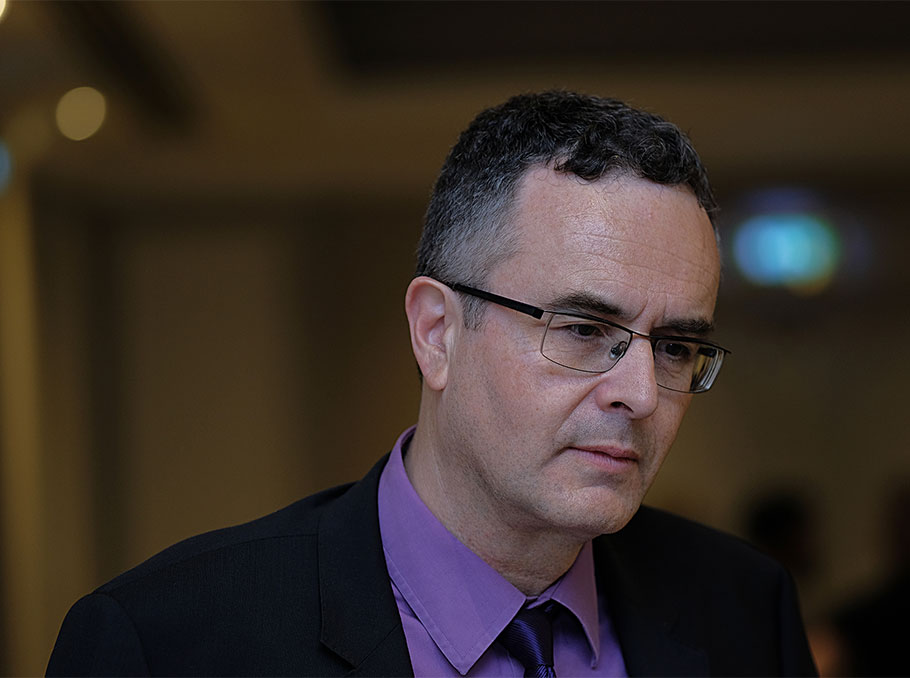 Leslie Szamosi
Leslie Szamosi Photo: Mediamax
From the perspective of a business and also the education process, we need to understand how to use that tool along with some fundamental knowledge. You cannot simply take it at face value. There has been a lot of documentation that AI has made up things. It is only as good as the information that has been put into it. An evident example is when Robert F. Kennedy, U.S Secretary of Health and Human Services, presented a report generated by AI citing nonexistent studies. Potentially, you can cause damage.
So, while AI is a powerful tool – and I am genuinely amazed by it – what truly matters is how we integrate it with human knowledge. Besides, AI will not network for you, it will not replace shared experiences, and it does not fully understand local realities: it takes into account the average and it moves towards the middle, which may actually damage rather than assist. And that is where it can become risky – because Armenia, or any other country, has its own specific context that AI might overlook.
- In that case, what does the programme offer to its students? What are the main advantages that the Pan-European Executive MBA provides?
- I think what we do well is organize and consolidate the vast amount of information available today – bringing together ideas and ways of thinking from different parts of the world into a format that can be applied across various contexts.
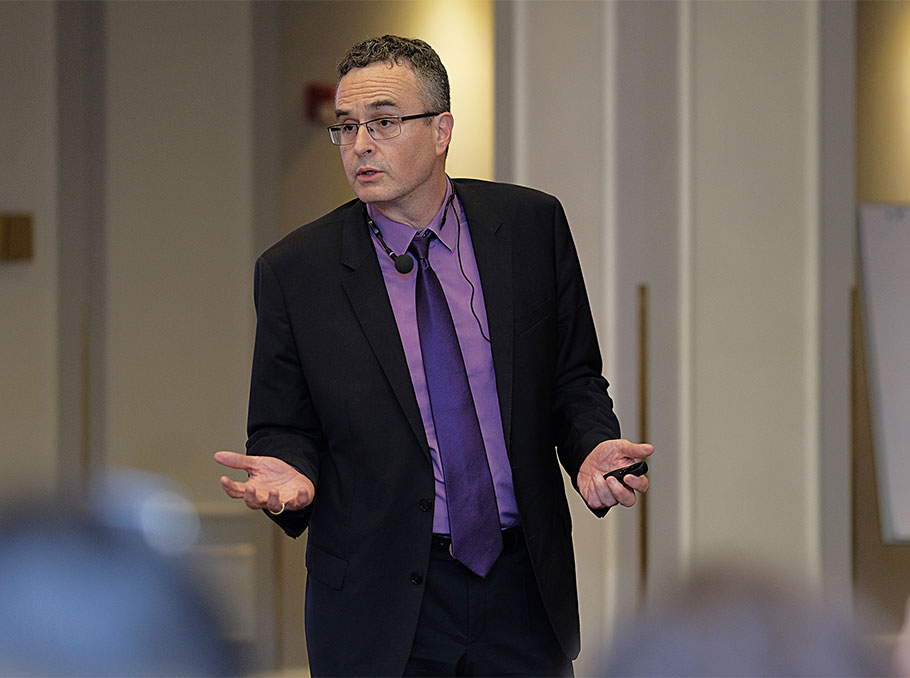 Leslie Szamosi
Leslie Szamosi Photo: Mediamax
Another key advantage is that, through years of experience and working with many different people, we are able to find unique solutions to complex problems that others might not be able to solve as efficiently. Over these many years, I often hear our MBA students say at the end of the programme, “I think differently now.” I believe that is a credit both to the programme and to the students themselves – because changing the way we think is a time-consuming process.
- It is interesting to know how you integrate AI tools into the educational programme. Could you give an example of how your students use AI during classes or while completing assignments?
- I teach Organizational Behavior, and one of the biggest questions is how to motivate employees. One approach I like to use when discussing this topic is the following: I ask my students, “How would you motivate one of your company’s employees who does not seem motivated? Write it down”.
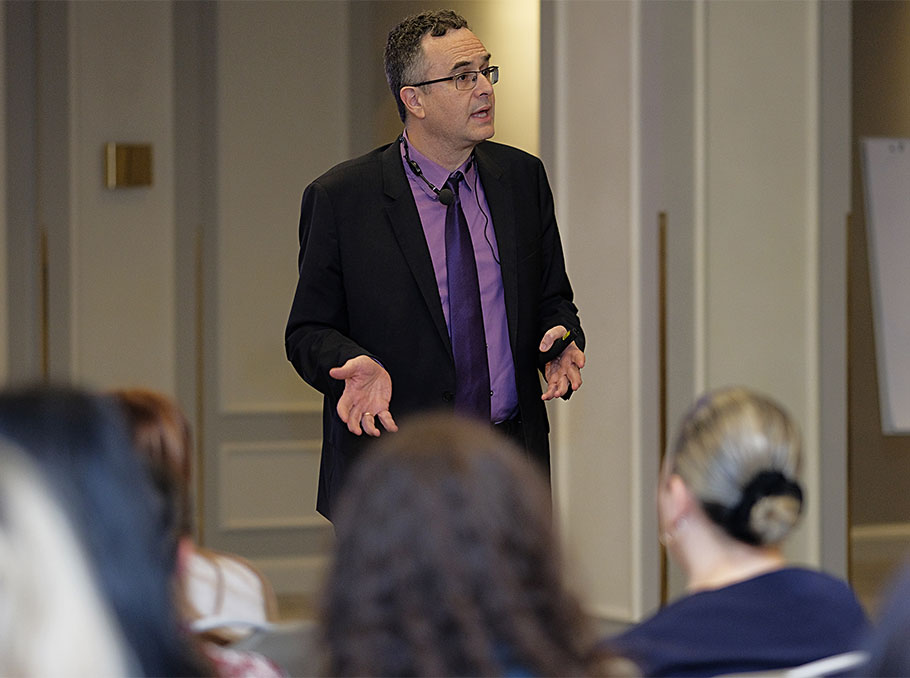 Leslie Szamosi
Leslie Szamosi Photo: Mediamax
After that, I present what we know about this issue from both theoretical and practical perspectives. Then, we ask the same question to an AI tool, and in the end, we compare the three perspectives – what is similar, what is different, what works and what does not. The students then try to contextualize it within the environment in which they work.
Once we summarize that, I ask them again, “So, what would you do now to motivate that employee?”
I like using AI as a tool that contributes to the overall discussion. But once again, I must emphasize – it is a tool, not a solution.
- I am not sure whether your students are afraid of AI or not, but I believe this teaching approach can help people overcome that fear, as it shows both what they can gain from AI and what their own human contribution is.
- Absolutely. Perhaps it sounds a bit stereotypical, but it is usually the older generation that fears AI, not the younger one. The younger students simply need a bit more confidence that they are making the right decisions. My role is to make sure they challenge not only AI but also their own way of thinking.
- While preparing for this interview, I asked ChatGPT to name the top three challenges business leaders face today – in the age of AI – and it came up with these three:
- balancing AI-driven efficiency with human-centered leadership,
- managing AI ethics, trust, and regulation,
- redefining talent and organizational models in the AI era.
Do you agree with this choice? If not, please give your own top three challenges.
- It is interesting that a computer tells us to balance human-centered leadership or to redefine talent in the world of AI. It is rather ironic: a computer telling humans that they need to be more human.
Are these managerial challenges today? Absolutely yes. But if I were asked to name the three primary challenges, I would highlight the following: finding the human value in the world of AI – what can we, as humans, can add? Ethics would definitely be on that list. But I do not think I would include redefining talent. Instead, I would say managing talent – that is much more important. We do know what kind of talent we need, but how do we manage it? How do we get the best out of people in an AI-driven world?
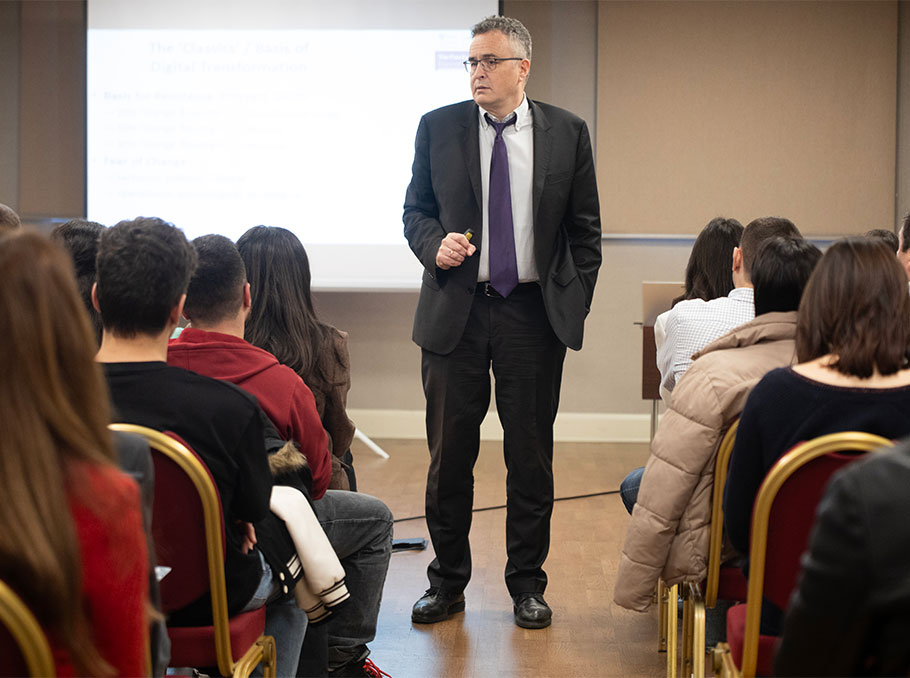 Leslie Szamosi
Leslie Szamosi Photo: Mediamax
I think our programme does a very good job in helping people to bring out their hidden talents. At the same time, we are also constrained by the organization and the country that we are working in. There is still more male-driven autocratic leadership style in the Armenian market. Management is a process – and so is the development of people.
Yet, I am glad to see that changes have begun to take place in Armenia. I think one of the reasons is that many companies realized that they have lost very talented employees because of their management and leadership style that no longer matchs the mindset of today’s youth. Another reason is the “brain drain” out of Armenia that has been catastrophic. So the question then is how do you keep good people behind in the country? How do you re-attract or reverse “brain drain”?
People returning from abroad will invest in systems they are familiar with – the ones they have worked with outside the country. In the Armenian context, the managerial challenges lie in this area.
- Education must be able to keep pace with the times – especially in our era of rapid technological changes. Having worked in the field of business education since 1999, you have witnessed its evolution firsthand. What changes have you observed in recent years?
- If we go back to 1999, many will remember that finding information meant spending hours, sometimes even days, in the library. Today, when the same information can be accessed within seconds, we face a new challenge: in this age of vast information accessibility, the real task is how to bring it all together, how to consolidate it.
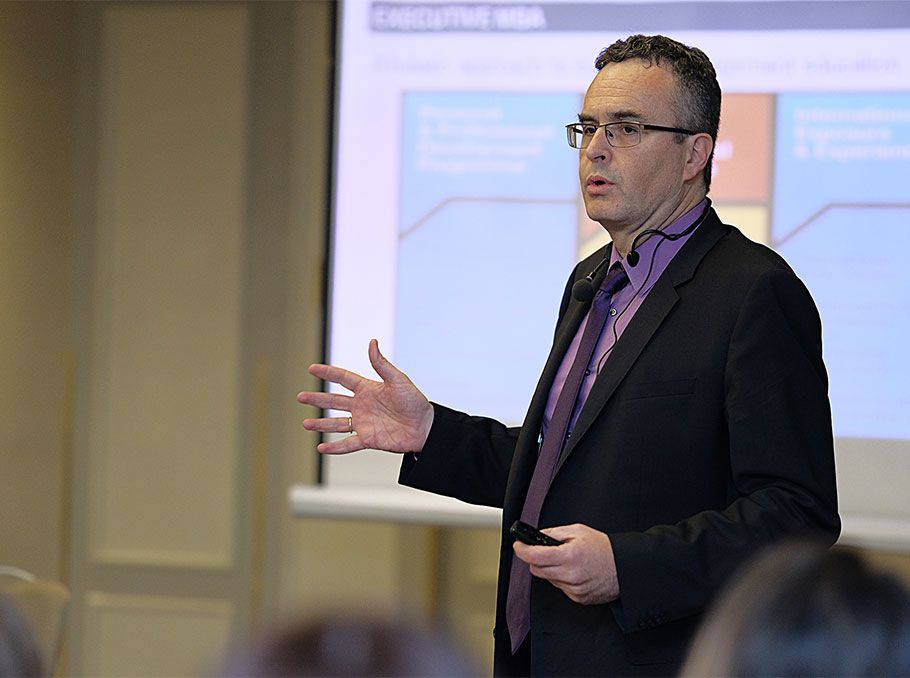 Leslie Szamosi
Leslie Szamosi Photo: Mediamax
I can confidently say that today’s students – as the Gen Z generation enters the MBA sphere – are much smarter. We have come to a point where it is essential to keep challenging thinking. Another positive change, in my view, is that today’s MBA students are far more concerned with environmental, ethical, diversity, equality, inclusion and other social issues. In other words, they care not only about making money but also about doing good at the same time. I believe this mindset should be embedded in every good MBA programme.
Today’s students also have a strong desire for international experiences. That is why we take our students to York, Strasbourg, and Thessaloniki for study weeks, giving them the opportunity to see things from a new perspective, to network, and to connect with professionals from different backgrounds.
- It is worth noting that your MBA students are already established professionals with experience in their respective fields. Could you clarify who the Pan-European Executive MBA programme is designed for and at what stage of their careers people should apply?
- For me, education never ends: it is a continuous process. And people do not need to go back to school to be educated. We can educate ourselves through the people we work with, the opportunities we give ourselves, and the situations we place ourselves in.
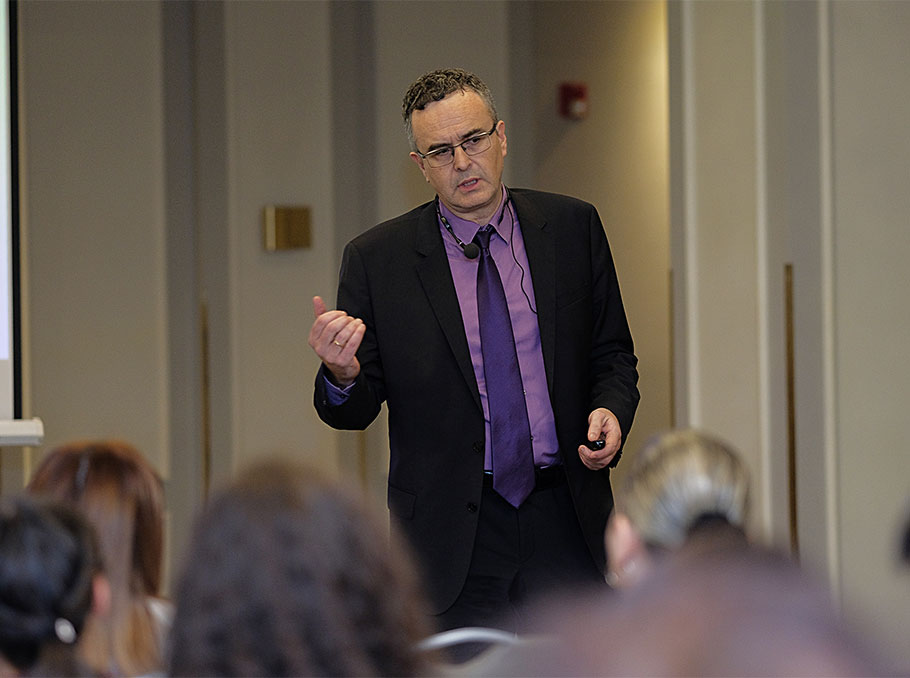 Leslie Szamosi
Leslie Szamosi Photo: Mediamax
Those who join our MBA program are not just looking to advance their careers – they want to develop the ability to see things from a different perspective. I often hear my students say, “I have reached a certain point in my career, but I feel like I have plateaued and cannot move to the next level, so I need to challenge myself in a different way.” Others realize that they need to understand different aspects of business, not just the area they work in. These are the kinds of challenges our students seek.
If I speak specifically about the Armenian market, I would say the following: compared to when we first launched the program, students today are much more externally focused than internally focused. They understand that the country’s future is not limited to Armenia or even the Caucasus – it lies in the global marketplace. And to be competitive there, one must understand the fundamentals that people in other countries have had access to. I think that is where we play a pivotal role.
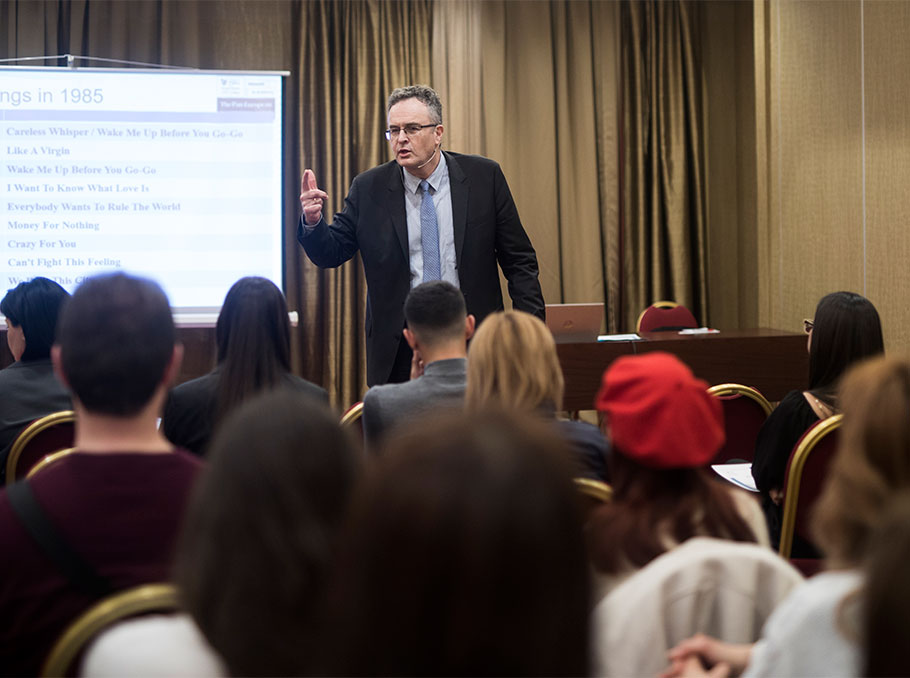 Leslie Szamosi
Leslie Szamosi Photo: Mediamax
I do not see us merely as educators, but as people helping to develop the country. Yes, that happens through our work with students in the classroom, but more importantly, through turning them into those who will teach others. Unfortunately, not everyone has the chance to study in our program, but those who do will go on to share what they have learned – and that is what I value most in our students. They genuinely want to make the country better.
- It is very nice to hear such words from a foreigner.
- My great-grandmother was of Armenian descent, so by definition that makes me Armenian. I know, everybody comes from Armenia, I know that [laughs]. But let me be clear – for me, the greatest pleasure, whether in Armenia or elsewhere where we run this programme, comes from making a difference. I am happy when I see our students succeed, and by success I do not mean financial: yes, some of them got the Porsches, but that is not the point.
I am talking about those people who say, “I will not let the system push me back. I will break walls and open gates.” Even if it is just a small “crack”, it shows that we are on the right path.
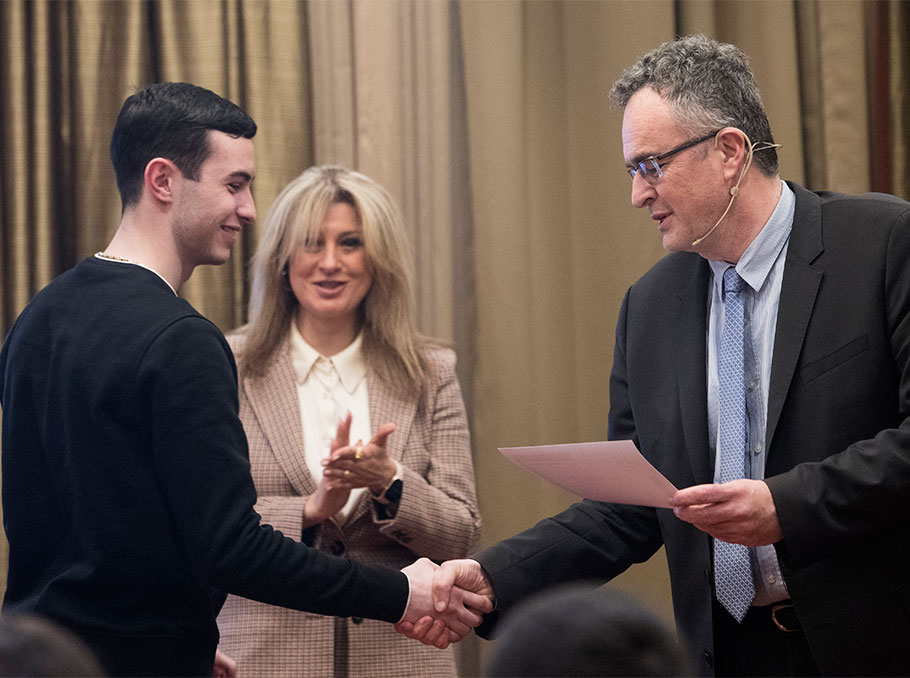
Photo: Mediamax
That is why I want to see in the classroom people who truly belong there – not those who simply need a piece of paper to show their boss, but people ready to expand their boundaries and willing to help others grow as well.
- I would like to end with a slightly humorous question: if ChatGPT were one of your MBA students, do you think it would successfully graduate, or would it fail the exams?
- First of all, I hope we never get to that point [laughs]. And you know what? If ChatGPT gave me an assignment, I would have ChatGPT mark the assignment. I think it would do okay - but certainly not great.
If we have this interview 20 years from now, it will probably be your ChatGPT interviewing my ChatGPT. AI is going to get stronger and better, and I am not against that tool at all. I appreciate how it makes my work more efficient, but I always challenge it.
So, if ChatGPT was in the room with me, I would be challenging it just like I would do a regular student.
Gaiane Yenokian talked to Professor Leslie Szamosi









